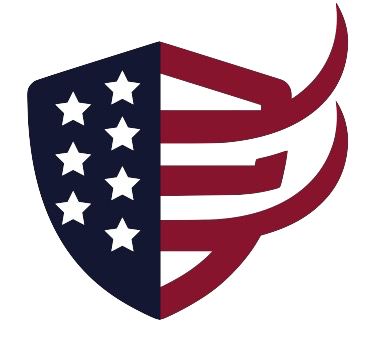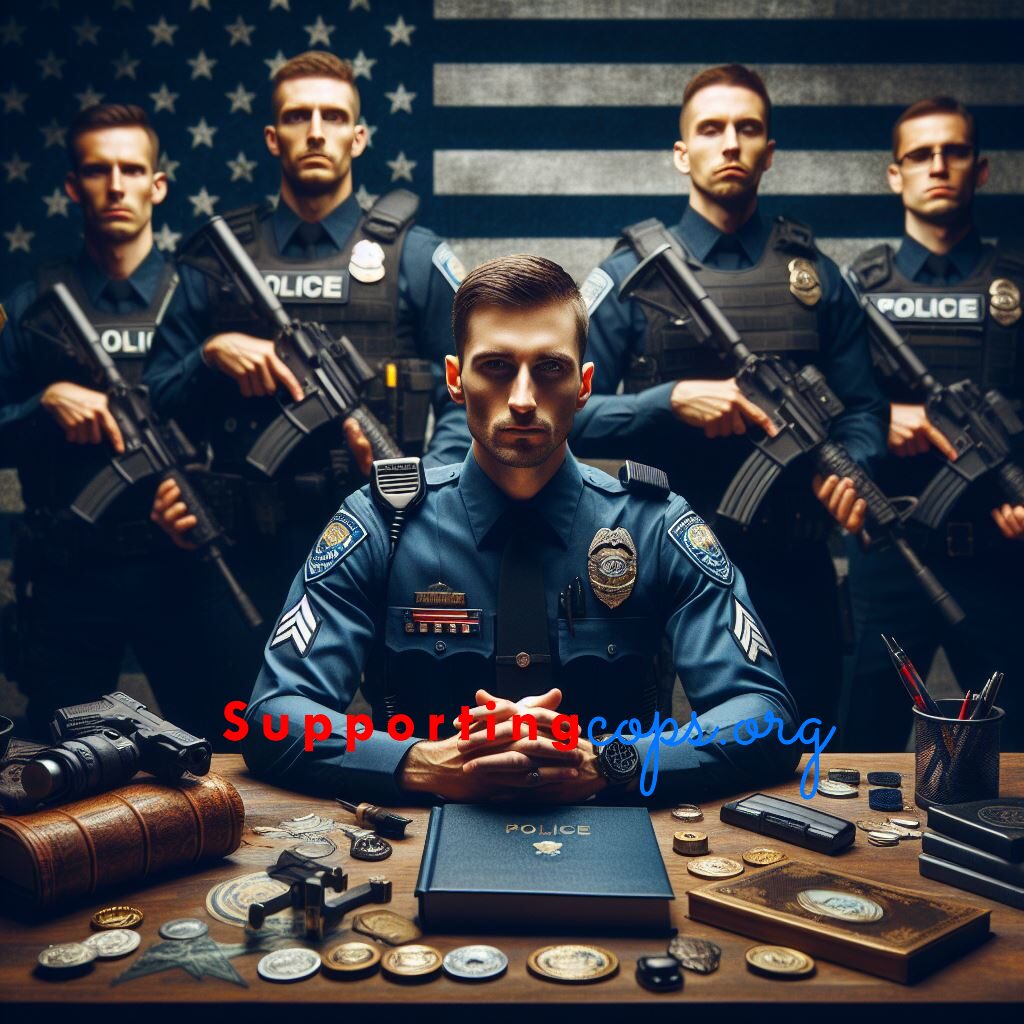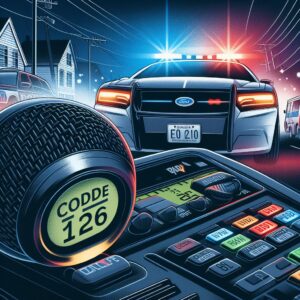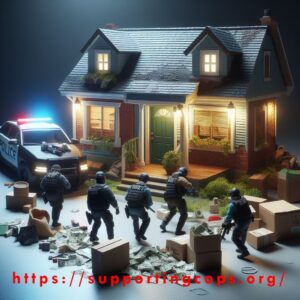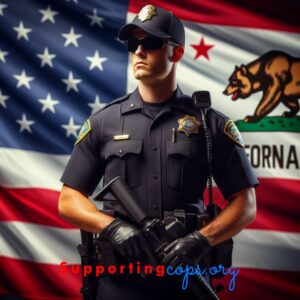An overview of the federal police force
What is a federal police force?
A federal police force is technically prohibited by the U.S. constitution, but instead we have what’s called federal law enforcement agencies. The reason for this is that the nation’s founders thought that the best way to maintain a democratic government was to leave law enforcement decentralized and in the hands of the individual states.
Why do we have federal law enforcement instead?
That said, there is a need to have federally operated agencies to enforce various types of laws, so the distinction between federal police force and federal police agency is one primarily of semantics.

Overview of the 8 federal law enforcement agencies
1. Federal Bureau of Investigation (FBI)
Tasks and responsibilities
The FBI is one of the oldest of the federal law enforcement agencies. It’s a federal police force tasked with protecting the U.S. against terrorist threats and intelligence offenses.
Key activities
They also enforce federal criminal laws and step in to help in any situation that’s too large for a local law enforcement agency. An example of this would be serial killings that would normally be above the specialty of a local police force.
2. Central Intelligence Agency (CIA)
Tasks and responsibilities
The CIA is a highly secretive federal police force whose mission is to collect and evaluate foreign intelligence in an effort to protect the security of the United States.
Key activities
They may also be involved in covert activities in other countries at the discretion of the president of the U.S. They are highly involved in combating international terrorism and frequently work with other countries in that effort.
3. Immigration and Customs Enforcement (ICE)
Tasks and responsibilities
ICE is the second largest agency in the federal police force. They’re under the auspices of the Department of Homeland Security and are in charge of enforcing laws involving border control, customs, trade and immigration.
Key activities
Since the terrorist attacks of 9/11, they’ve been heavily involved in monitoring U.S. borders for potential terrorist suspects. They’re the federal police force that enforces illegal immigration activities throughout the U.S. and investigates illegal drug importation.
4. Bureau of Alcohol, Tobacco, Firearms and Explosives (ATF)
Tasks and responsibilities
The ATF is under the umbrella of the U.S. Department of Justice. They investigate and enforce the illegal trafficking of firearms and explosives as well as the theft and the unlawful sale and distribution of alcohol and tobacco.
Key activities
The ATF conducts sting operations, undercover investigations, and raids to combat the illegal trade of these controlled substances. They work closely with local law enforcement agencies.
5. Department of Homeland Security
Tasks and responsibilities
The Department of Homeland Security is the third largest cabinet department and was created after the terrorist attacks on the U.S. on September 11, 2001. It’s tasked with protecting the U.S. against terrorist attacks and responding to natural disasters like hurricanes, tornadoes and floods.
Key activities
The Department of Homeland Security oversees agencies like the U.S. Coast Guard, U.S. Customs and Border Protection, and the Federal Emergency Management Agency (FEMA). It conducts threat analysis, information sharing, and risk mitigation.
6. U.S. Drug Enforcement Administration (DEA)
Tasks and responsibilities
The DEA is responsible for enforcing laws relating to controlled substances like marijuana, cocaine and heroin. They work with other federal, state and municipal agencies, as well as with foreign governments to reduce the trafficking of illegal drugs.
Key activities
The DEA investigates large national and international drug trafficking operations, develops drug intelligence programs, and conducts joint task force operations with local law enforcement.
7. U.S. Secret Service
Tasks and responsibilities
The Secret Service’s primary function is to protect the President of the United States, but they also guard the President’s family, as well as the Vice-President and other high ranking government officials who might face security threats. This federal police force operates under the Department of Homeland Security and is also tasked with protecting against counterfeiting of U.S. currency and credit card fraud.
Key activities
The Secret Service provides 24/7 protection details, conducts threat assessments, and coordinates elaborate security plans for high-profile events involving protected individuals. They utilize the latest technologies and security tactics.
8. U.S. Marshall Service
Tasks and responsibilities
The U.S. Marshall Service is the oldest federal police force in the country. They’re in charge of conducting the safe transfer of federal prisoners and protecting federal courts and judges. They also serve as covert law enforcement on U.S. air carriers.
Key activities
U.S. Marshals provide courtroom security, transport prisoners, locate and apprehend fugitives, serve arrest warrants, and assist other law enforcement agencies as needed. They conduct special operations and work with local agencies on fugitive task forces.
Similarities and differences
While the 8 federal law enforcement agencies have some overlapping duties, there are some key similarities and differences:
Investigation vs intelligence
Some agencies like the FBI and DEA focus more on investigations and enforcement, while others like the CIA concentrate on intelligence gathering and analysis.
Domestic vs foreign
Most of the agencies deal with domestic law enforcement within the U.S., while the CIA and some areas of the FBI and DHS handle international issues.
Federal vs local jurisdictions
The federal agencies can exercise jurisdiction across state lines and assist local agencies, but generally avoid interfering with local law enforcement matters unless requested.
Conclusion
Summary of key points
While a federal police force is technically prohibited, federal law enforcement agencies fulfill vital roles in specialized areas to protect national security, enforce federal laws, respond to major crises, and support local jurisdictions.
Importance of federal law enforcement
Federal law enforcement helps address threats beyond the capabilities of local agencies and provides central coordination on complex cross-jurisdictional matters. The distinctive duties of agencies like the FBI, CIA, DEA and Secret Service are essential for national security and public safety.
FAQs
1. Which federal law enforcement agency is the largest?
The Department of Homeland Security (DHS) is the largest federal law enforcement agency with over 240,000 employees.
2. What is the main role of the U.S. Marshall Service?
The U.S. Marshals Service is responsible for protecting the federal judicial process by providing security for federal court facilities and proceedings, transporting federal prisoners, executing federal arrest warrants, and tracking down fugitives.
3. Can FBI agents make arrests?
Yes, FBI agents have the authority to carry firearms and make warrantless arrests for any federal crime committed in their presence or if they have reasonable grounds to believe the person has committed a felony.
4. Who investigates threats against members of Congress?
Threats against members of Congress are investigated jointly by the U.S. Capitol Police and the FBI. The Capitol Police handle the initial investigation and then work with the local FBI field office on assessing and mitigating the threat.
5. Which federal agency is primarily focused on counterterrorism?
The primary counterterrorism agencies in the federal government are the Federal Bureau of Investigation (FBI) and the National Counterterrorism Center (NCTC). They lead investigations and intelligence operations against domestic and international terrorist threats.
